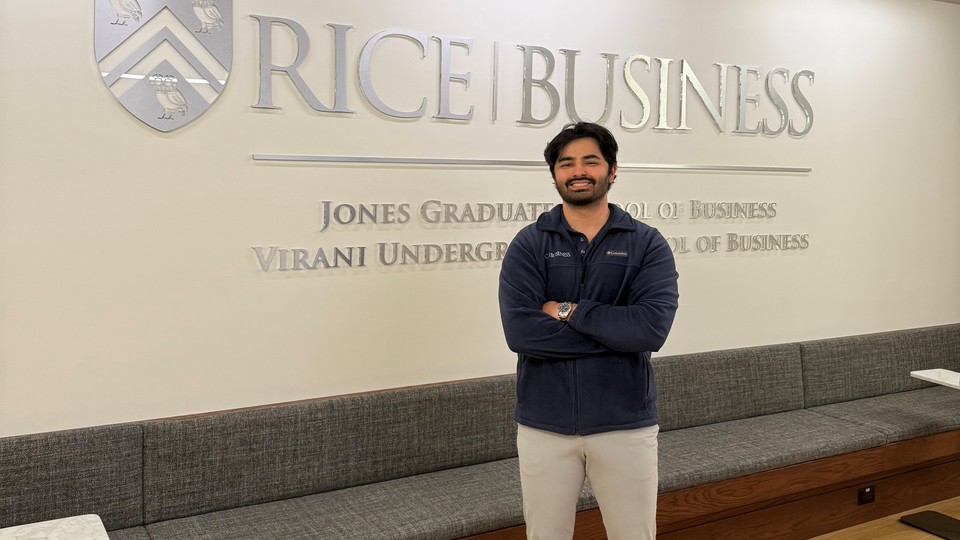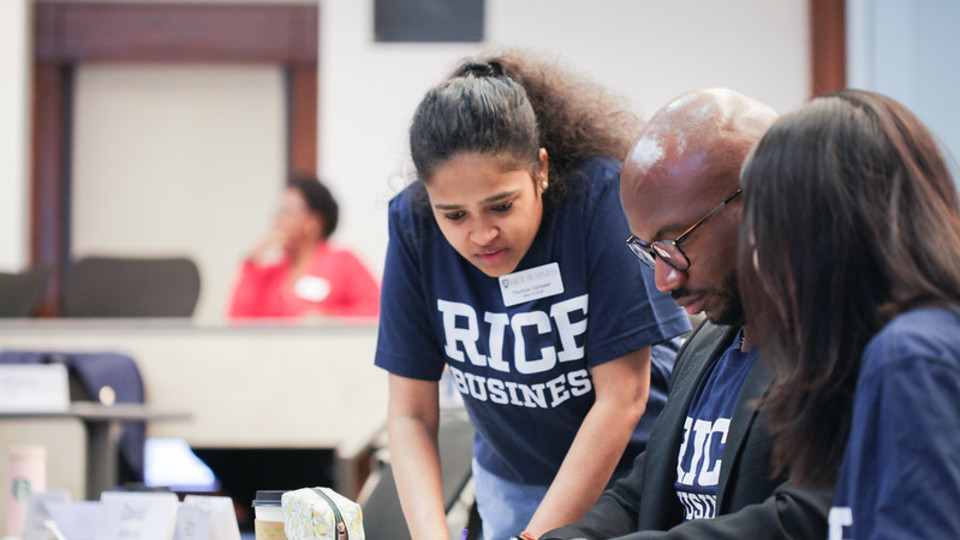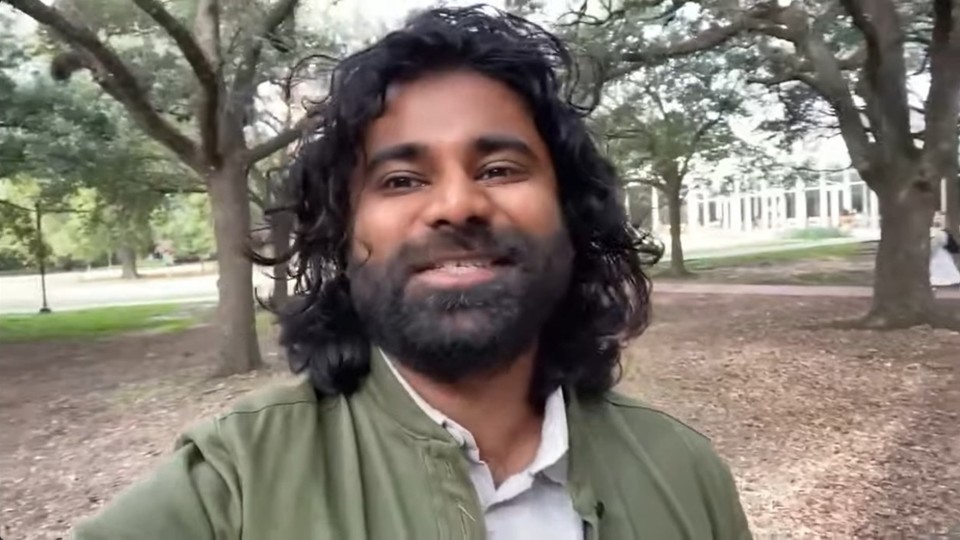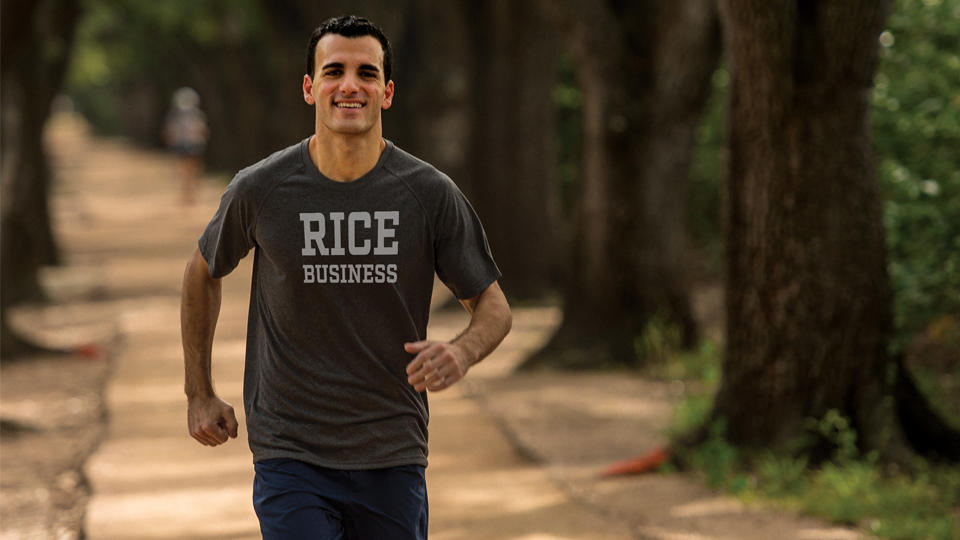How the Rice MBA Compliments Your Career
Rich Hoover, Executive MBA '20
Rich Hoover, a Rice Business EMBA graduate and veteran, talks about how the EMBA program has challenged and enriched his professional life.
You May Also Like
Keep Exploring
Break Out of Your Comfort Zone
Caroline Incavo, Full-Time MBA '20
Caroline Incavo is a Full-Time MBA student at Rice University. Her advice to prospective students? Step out of your comfort zone and see what Rice Business has to offer!
You May Also Like
Keep Exploring
The Power of an MBA
Kathleen Menezes, Full-Time MBA
Kathleen Menezes chose to get her MBA at Rice Business because she understands the power of an MBA and the Rice Business reputation!
Keep Exploring
Full-Time MBA Student Testimonial: Mary Feng
Mary Feng, Full-Time MBA
Have questions about the application process, Houston or the Rice Business culture? Mary Feng, Full-Time MBA, loves Rice Business because the alumni and students are receptive and willing to talk about anything!
Keep Exploring
Experience of a Lifetime
Ariel Chen, Full-Time MBA
Ariel Chen, Full-Time MBA student, chose Rice for her MBA because of the small community that allows her to build close relationships with her professors and make life-long friends. Interested in learning why #YouBelongHere? Try a phone call or coffee chat to learn more about Rice Business to see if it's the right fit.
You May Also Like
Keep Exploring
Enriching Academics
Marjorie Ma, Full-Time MBA '12
Marjorie Ma '12 explains why she made the choice to get her MBA at Rice Business.
You May Also Like
Keep Exploring
Returning to Rice
Lynn Lednicky, Full-Time MBA '91
Lynn Lednicky shares his reasons for choosing Rice Business for his MBA.
You May Also Like
Keep Exploring
Diversity in Courses
Fernando Gil, Full-Time MBA
Fernando Gil shares his reasons for choosing Rice Business for his MBA.
You May Also Like
Keep Exploring
A Visit is Worth a Thousand Words
Doug Molina, Executive MBA '09
Diego Molina '09 shares his reasons for choosing Rice Business for his MBA.
You May Also Like
Keep Exploring
A Cohort of Support
Lemboye AyoVaughan, Professional MBA
Evening Professional MBA student Lemboye AyoVaughan chose Rice Business because of the opportunities, but he knew he found the right fit when he discovered the diversity in the food that Houston has to offer!



